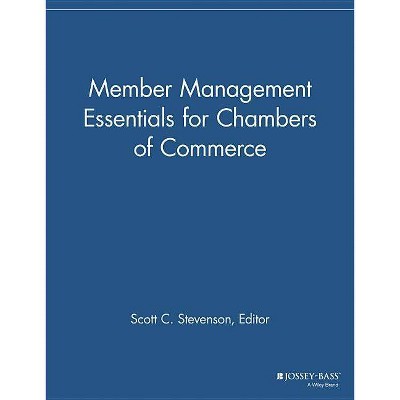The German Chambers of Commerce and Industry - (Practical Wisdom for Sustainable Organizations) by Eberhard Sasse & Andre Habisch (Paperback)

Similar Products
Products of same category from the store
AllProduct info
<p/><br></br><p><b> Book Synopsis </b></p></br></br><p></p><p>This open access book examines a particular factor in the enduring international success of German companies. Beyond industrial specialization, peaceful labor relations, local financial markets and the "miracle of the Mittelstand", it focuses on a characteristic aspect of governance within the German economy: The Chambers of commerce and industry. Important characteristics of the Chamber system are emphasized - including obligatory membership for firms as well as participatory rules of their self-administration. </p> <p>In turn, the book examines the institution's self-governance, its services, and its mission regarding the general representation of interests. Moreover, the book also identifies the advancement of the dual system of professional education as a central element of the Chamber system. Following an introduction about how the Chamber system works, interviews, case studies and historical explanations help to exemplify the true spirit inherent to this form of representation. In particular, they reveal the essence of how the Chambers contribute to the global success of German companies and foster their corporate responsibility in a practical way.</p> <p>Given its scope, the book will be of particular interest to professionals, policymakers and researchers concerned with how institutional organization can support commerce and industry for the public good. The book was developed in collaboration with Laura Sasse and the Practical Wisdom Society.</p><br><p></p><p/><br></br><p><b> From the Back Cover </b></p></br></br><p>This open access book examines a particular factor in the enduring international success of German companies. Beyond industrial specialization, peaceful labor relations, local financial markets and the "miracle of the Mittelstand", it focuses on a characteristic aspect of governance within the German economy: The Chambers of commerce and industry. Important characteristics of the Chamber system are emphasized - including obligatory membership for firms as well as participatory rules of their self-administration. </p>In turn, the book examines the institution's self-governance, its services, and its mission regarding the general representation of interests. Moreover, the book also identifies the advancement of the dual system of professional education as a central element of the Chamber system. Following an introduction about how the Chamber system works, interviews, case studies and historical explanations help to exemplify the true spirit inherent to this form of representation. In particular, they reveal the essence of how the Chambers contribute to the global success of German companies and foster their corporate responsibility in a practical way.<p></p><p>Given its scope, the book will be of particular interest to professionals, policymakers and researchers concerned with how institutional organization can support commerce and industry for the public good. The book was developed in collaboration with Laura Sasse and the Practical Wisdom Society.</p><p/><br></br><p><b> About the Author </b></p></br></br>Dr Eberhard Sasse is a successful entrepreneur of a family-owned company, based in Germany, and he is the President of the Chamber of Commerce and Industry for Munich and Upper Bavaria.<br>Dr. André Habisch is a trained Economist and Theologian. Since 1998 he serves as a Professor for Social Ethics and Social Policy at the Catholic University of Eichstaett-Ingolstadt. His research interests include public chambers of commerce, the structures of vocational education, sustainable entrepreneurship and social innovation, with several international visiting professorships and lectures.<br><p> </p><br>
Price History
Price Archive shows prices from various stores, lets you see history and find the cheapest. There is no actual sale on the website. For all support, inquiry and suggestion messagescommunication@pricearchive.us




















